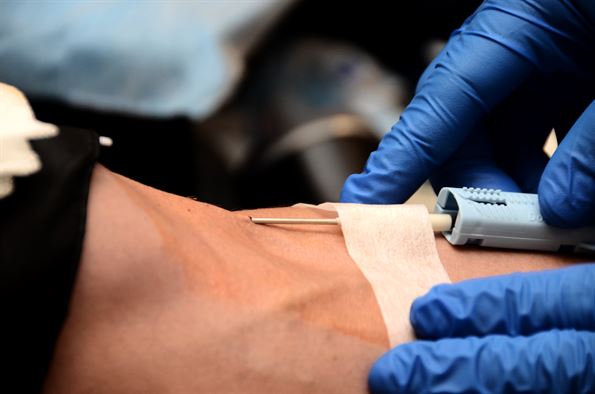
STIs are an unfortunate risk with all sexual activity, but how are they treated? Each STI is treated differently. Some, such as HIV, are life-long conditions requiring constant management, but many of the more common infections are simple to treat in as little as one tablet. Below we detail the treatment options for the three most common STIs.
Chlamydia
Chlamydia is the most common bacterial STI. It is often symptomless, but can be severe when left untreated. With chlamydia, it is vital you get treatment as it can even lead to infertility in women. Chlamydia treatment can usually begin once diagnosed by a doctor or sexual health clinic, although in some cases if you are strongly suspected to have it, you may be prescribed the antibiotics before the test results come back.
The two most commonly used antibiotics for chlamydia are doxycycline, which is usually two capsules twice a day for a week, and azithromycin, which is between two and four tablets taken at once. If you have any antibiotic allergies, alternatives can be prescribed. Sexual activity can be resumed once your antibiotic course is completed.
Genital Warts
Genital warts are the most common viral STI in the U.K. Caused by HPV, they are often only detected by a medical exam, but sometimes the lumps are very obvious. Genital warts cause small lumps to form around the genitals and anus. Left untreated, it is a major cause of cervical cancer.
Treatment depends on which type of warts you have. Genital warts are sometimes treated with physical ablation, such as freezing, heating, or cutting away the wart. These methods generally work best on harder warts. Softer warts are generally best treated with a topical medicine such as a cream or lotion.
It can take several months for the warts to vanish entirely. In the mean time, it is important to avoid sexual activity. This not only protects partners, but protects against the friction from sex slowing down healing. Even after the warts have gone, traces of HPV can remain in the skin, so it of extra importance to use condoms in the three months following infection.
Genital Herpes
Genital herpes causes small blisters on the genitals which sometimes lead to painful ulcers. Sometimes infection also comes with flu-like symptoms and difficulty urinating. There is no cure for genital herpes once the virus is in your skin, but antiviral drug therapy can be used to reduce severity of symptoms and minimise the likelihood of repeated outbreaks.
The antiviral aciclovir is usually the drug of choice for treating genital herpes. It will usually be prescribed for all first infections. Subsequent outbreaks that are mild and infrequent can often be managed by symptom management such as washing the area with salt water to aid healing and holding ice packs over the blisters to reduce pain. Severe and frequent issues may require a suppressive treatment plan, where an antiviral is taken daily. Sex must be avoided until the skin is blister-free, and sexual activity should be ceased whenever you feel the tell-tale tingling of an impressing outbreak.